Everyone Else Thinks This Game Is Awesome is a new trivia game from Zach and Kelly Weinersmith, the creative team behind the webcomic Saturday Morning Breakfast Cereal. SMBC is known for its niche science jokes, and the couple are the New York Times bestselling authors of Soonish, a book on near-future technologies, so it shouldn’t come as a shock to anyone that this academia-themed game tests players’ knowledge of the sciences.
If you never did well in biology or chemistry, don’t let that scare you. The game includes questions about those fields, certainly, but it also includes economics, anthropology, philosophy, and more. “The Sciences” here is used in its broadest sense. While some of the questions can be challenging, most of them are accessible or include hints within the question itself. You don’t need to be a practicing zoologist to guess that the answer to “Draculin is an anticoagulant chemical found in what animal’s saliva?” is the vampire bat.
Take a Chance On Me
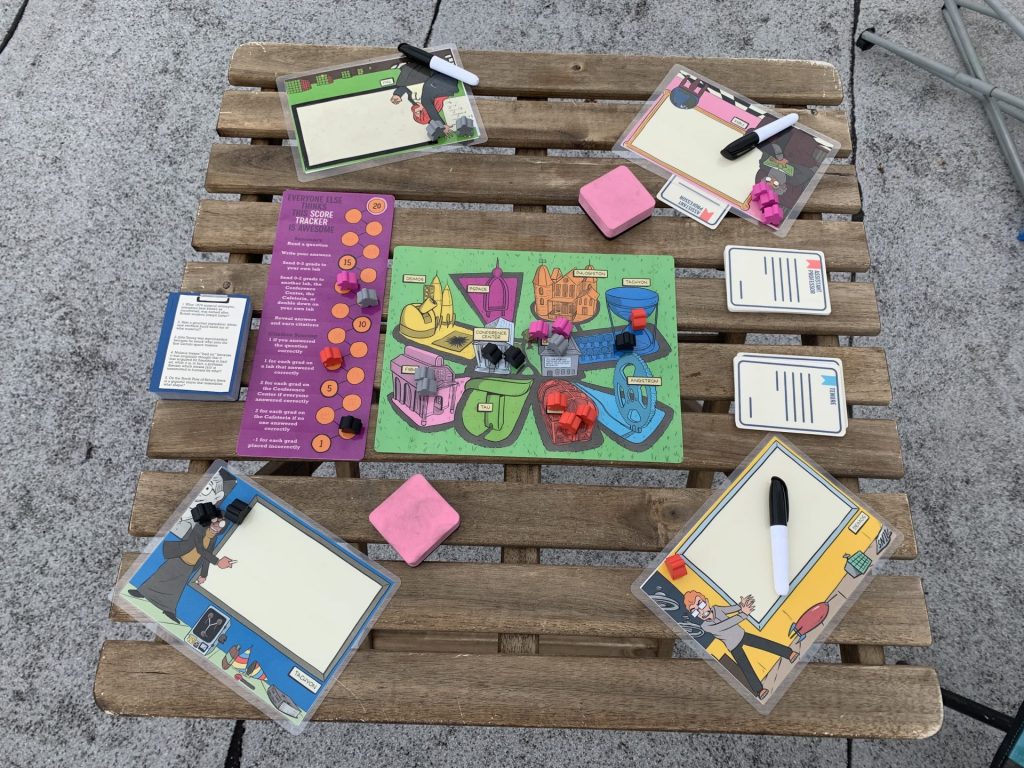
As one would expect with a trivia game, gameplay and setup are simple enough. A board showing an illustration of a university campus is placed in the center of the table alongside the deck of question cards and the citation track, which tracks points. Each player gets an erasable white board, a marker, and five meeples representing their graduate students. Responsibility for reading the questions moves clockwise around the table; the next player clockwise from the reader picks a number between one and five, and the corresponding question is read aloud. Players then take a moment to write their answers down in secret before, in turn order, sending up to three graduate students to their own location on the board. These are expressions of self-confidence. The more sure you are that you have the correct answer, the more students you’ll want learning from you in your lab.
Once everyone has asserted their sense of self-worth, players take turns sending the remaining two graduate students to other players’ labs. Doing this says “I believe you do know the answer.” There are two additional spaces available in the center of the board, the conference center and the cafeteria, which represent a bet that either everyone or no-one has written the correct answer respectively. Once the bets have been placed, players reveal their answers, the correct answer is read, and players move up or down the citations track based on whether or not their answer and their wagers were correct. You gain one citation for having a correct answer, and an additional citation for each meeple you placed on a building corresponding to a player with a correct answer, including yourself. You lose one citation for every meeple you placed on a building corresponding to a player with an incorrect answer, including yourself. As for the conference center and cafeteria, you gain two points per meeple if everyone is correct or wrong, respectively, but you lose only one if there is a mix of correct and mistaken answers. It takes a minute to wrap your head around, but it’s not too bad.
That’s it! That’s the whole thing. You do that until one or more players reach 20 citations. They become members of adjunct faculty, the citation track is reset, and you start the whole thing over again. The game ends once someone is first to 20 citations three times, graduating from adjunct faculty to tenure to professor emeritus.
Trivia Games: On the Origin of the Species
Trivial Pursuit was first published in 1981, and became a runaway success. It defines the trivia game for multiple generations of gamers. I loved it as a child, because I loved trivia. In fact, I almost never played the game; I mostly just read the cards to see if I knew the answers. As I think on it now, for the first time in many years, I am overwhelmed with the weight and totality of my sudden understanding that Trivial Pursuit, one of the best-selling games of all time, a game with millions of hours of human playtime behind it, is profoundly boring. One player answers questions over and over until they get one wrong, rolling a die in the Sisyphean hope that they can eventually move onto a special space where a correct answer allows them to collect a pie slice. Get that question wrong and you could spend the next hour drifting along the outer circle, desperate for the die to break your way just one more time.
Dear reader, I have learnt too much about good game design in the 15 years since I last played to ever go back. What I’m experiencing in my mind’s eye right now is a Kafkaesque nightmare. People play Trivial Pursuit on purpose! For fun! A game that is 80% downtime and entirely subject to the whims of chance. That game has sold millions of copies. This is no longer a review of Everyone Else Thinks This Game Is Awesome, this is now an anti-Trivial Pursuit screed.
My Editor Has Informed Me That I Cannot Write an anti-Trivial Pursuit Screed and Have to Finish My Review of EETTGIA
Everyone Else Thinks This Game Is Awesome shows that there is a better—a significantly better—way. There are no dice and no special spots. Questions that you do not know are not a waste, because you can advance up the citations track by betting on other players. If nobody seems to know, you can advance by betting against everyone. There is no downtime. All the players answer all the questions. You don’t spend seven minutes contemplating the inevitability of your own mortality as your uncle answers 17 questions in a row. There are no “categories,” so you don’t spend the game being punished for weakness in a particular subject area—Sports—and the pressure to get a question right comes from the much more entertaining horse race of trying to be first to the top of the citations track rather than from happening to have finally rolled the number that you needed for that pie slice spot.
It’s important to acknowledge here that trivia games have never been about the game itself. They’re an excuse to hang out with your friends, learn some things, and make one another laugh with bad answers when you don’t know the right one. At this, Everyone Else Thinks This Game Is Awesome is a resounding success.
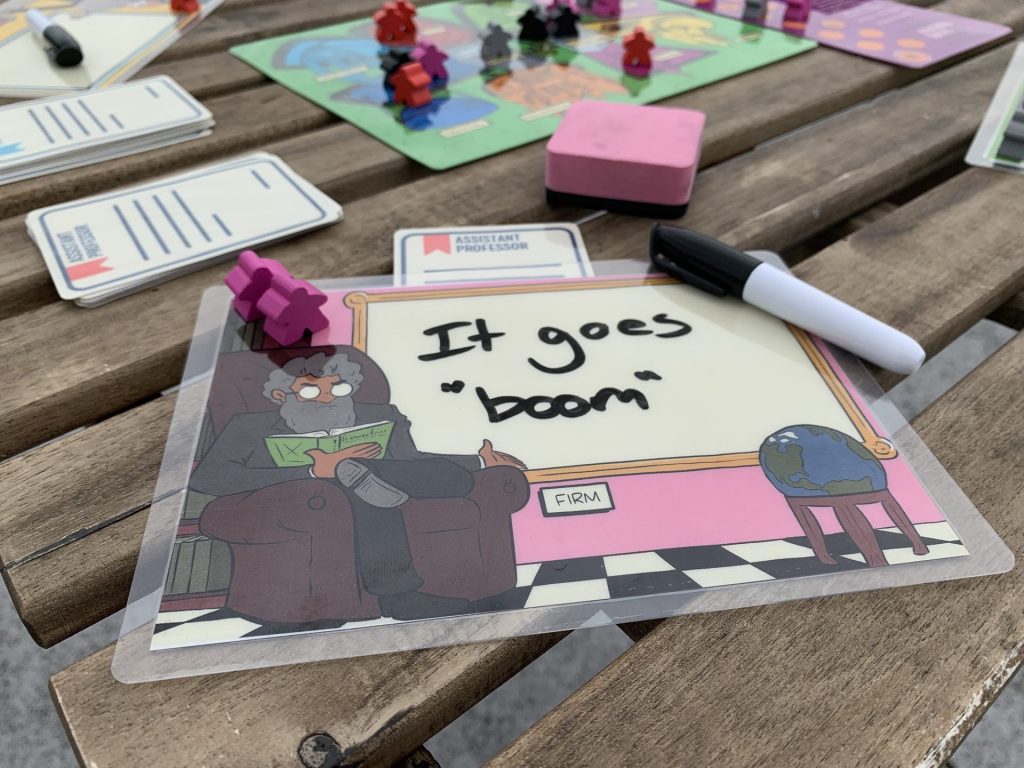
For every challenging question, there will be three that you know for reasons you can’t quite remember, and not knowing an answer is less frustrating here because it’s hard to get mad at yourself for not knowing the source of carbon in carbonated springs. Near-misses are funnier than they are frustrating, since, again, what, you’re going to get mad at yourself for forgetting that the acronym VSL stands for Value of Statistical Life? You’re mostly too busy being astonished that there was ever a point where you did know that. Besides, once the answer is read, you get to impress your friends with your knowledge of VSL and how it relates to government policies concerning things like arsenic in the water. Isn’t that really why we’re here?
The game gets bonus points for asking questions that allow for wrong answers that are often significantly funnier than they are in other trivia games. I defy you to come up with a funny response to the question, “How many interceptions did John Elway throw during Super Bowl XXXII?” Furthermore, I defy you to feel anything approaching interest in the answer. With this game, many of the questions that stumped us resulted in a brief pause as we Googled the answers, wanting to learn more.
Carbonated springs get their carbon from the carbonic acid released by cooled magma, by the way.
Lest we get carried away with positivity and good vibes, I do have two critiques. First, it is oddly difficult to remember how many meeples you can bet on yourself and on other players. I reviewed this game with an advance copy that used generic meeples, so the final components may change, but it was not intuitive that three of my identical meeples could be used to bet on myself and two could be used to bet on other people. I hope the final product, which is launching on Kickstarter later this month, will somehow differentiate the meeples for your own lab and the meeples for others. The other issue is that a number of the questions were rather difficult to parse on first reading. This is to be expected with a game that uses a lot of scientific terms, but it seemed more a matter of phrasing than vocabulary. Most questions are phrased as a single sentence, and I think they would be wise to reconsider that editorial choice. Two sentences would be easier to understand in many cases.
Those minor issues aside, if you’re looking for a good trivia game with a variety of fun questions that will make you feel smart and make you feel curious in equal measure, you couldn’t do better than Everyone Else Thinks This Game Is Awesome. I think it is too.


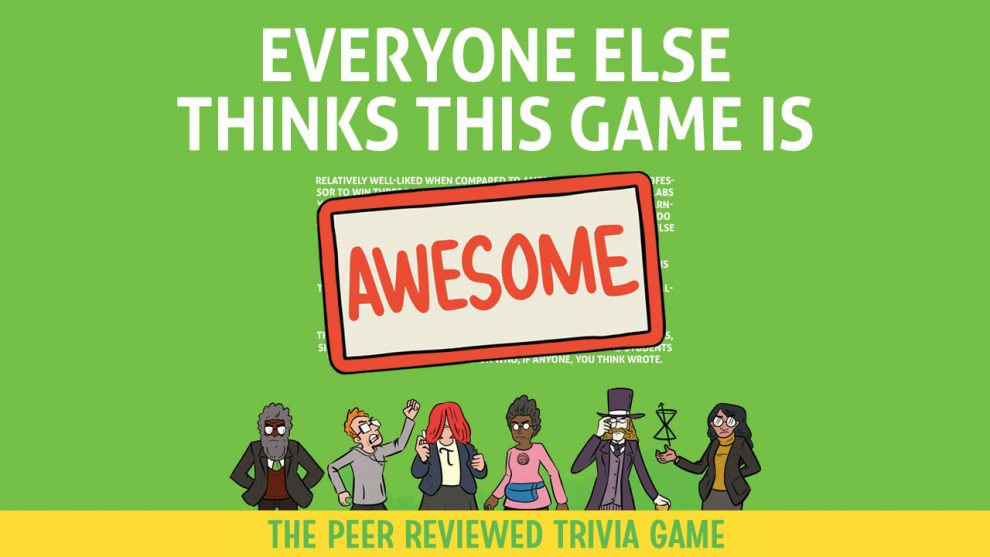


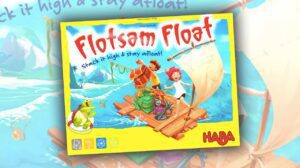
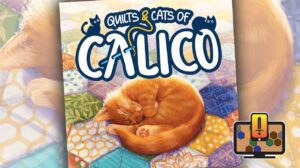

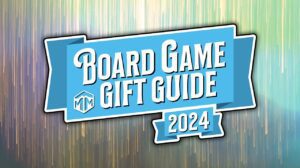


I was interested in the game reading your review and then I got to the designer…Matt Fantastic. Total punk that sucker punched a nice guy at GenCon a couple years back. Would never support anything from him ever.
Editor here. I remember that incident. It’s unfortunate that Matt used violence to stand up against the harassment of another Gen Con attendee. But I think that everyone deserves a second chance, would you agree Jeremy?
Hi Editor – thanks for responding. I guess by your reply it is suffice to say you are in favor of Greg Spence of The Broken Token also getting a 2nd chance from you. Got it, will let the community know about your support for 2nd chances for EVERYONE.